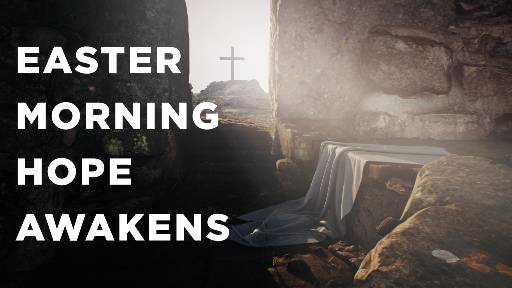-
Help My Unbelief Series
Contributed by Christopher Benfield on Jan 31, 2018 (message contributor)
Summary: Life on top of the mountain is exciting and often rejuvenating. Unfortunately we can't dwell on the mountain continually. Trails come in the valleys of life. It's imperative to use the lessons learned on the mountain when we face a valley.
Help my Unbelief
Mark 9: 14-29
Today our text takes a captivating twist. Peter, James, and John had experienced the glory of Jesus on the Mount of Transfiguration. Their experience was so wonderful that Peter desired to remain on the mountain. Jesus knew they could not stay there; He had much yet to accomplish. He had taken them there to reveal His glory, which would serve to strengthen their faith as they endured the difficulties of ministry following His death, resurrection, and ascension.
As the men made their way down the mountain, they were immediately met with difficulty. There would be no time to rest in the beauty of the moment. They were back among the world, and would need to be ready to endure the difficulties it brings.
We all enjoy those mountain top experiences, but we are not afforded the opportunity to dwell on the mountain. Most of the time, we will soon encounter the realities of life, following a mountain top experience. We must learn to use the lessons learned on the mountain as we navigate the difficulties of the valley. As we examine the aspects of this encounter, I want consider the thought: Help my Unbelief.
I. The Difficulty Encountered – After experiencing the transfiguration, the disciples were immediately met with a difficult situation regarding a man and his son. Consider:
A. The Condition of the Son (17-18; 21-22a) – Here we discover the dire condition of this young man. We find:
1. He was Dominated (18a) – And wheresoever he taketh him, he teareth him. He was taken and torn by a spirit. The word taketh has the idea of “laying hold of, to carry away, seize, or apprehend.” The word teareth speaks of “causing convulsions.” He was possessed of the devil; his life was filled and dominated by an evil spirit.
2. He was Delusional (18b) – and he foameth, and gnasheth with his teeth, and pineth away. When the evil spirit would attack this young man he would cry out, screaming in misery and pain. He would foam at the mouth and gnash his teeth. His life was not lived in a normal or peaceful way. This young man dealt with Satan’s influence and domination on a daily basis and it affected his mind and his emotions.
3. He was Defeated (18c; 21-22a) – and I spake to thy disciples that they should cast him out; and they could not. [21] And he asked his father, How long is it ago since this came unto him? And he said, Of a child. [22] And ofttimes it hath cast him into the fire, and into the waters, to destroy him. Here we discover the severity of the situation. This young man was literally living in torment on a daily basis, suffering such difficulty since he was a child. The spirit would overcome the young man, causing him to fall into the fire or bodies of water, in an attempt to take his life. He was at the mercy of this evil spirit. His life was dominated by Satan and he lived in utter defeat.
B. The Compassion of the Father – We also discover the unwavering compassion of the young man’s father. Notice:
1. His Desire (17) – And one of the multitude answered and said, Master, I have brought unto thee my son, which hath a dumb spirit. The father came to Jesus, desiring Him to heal his son. He had tried everything imaginable, and yet his son continued to deal with this dreadful condition. The father recognized Jesus and desired Him to do what others could not.
2. His Dilemma (18c; 22b-24) – and I spake to thy disciples that they should cast him out; and they could not. [22b] but if thou canst do any thing, have compassion on us, and help us. [23] Jesus said unto him, If thou canst believe, all things are possible to him that believeth. [24] And straightway the father of the child cried out, and said with tears, Lord, I believe; help thou mine unbelief. The father had done all he could. He had taken his son to others, but they were unable to help. Apparently he had heard of Jesus and the miracles He had performed. He begged Jesus to do something for his son. Jesus declared healing was possibly, but it required faith. The father honestly replied that he wanted to believe, but he needed help with his unbelief. (We often respond much the same. We know Jesus is more than able to meet our needs, and yet we tend to doubt whether He will respond to our prayers.)
II. The Desperation Exposed (18c-19) – Mark revealed this was a desperate situation. Others had compassion for the situation, but they were unable to help. Their desperation is revealed in:

 Sermon Central
Sermon Central



